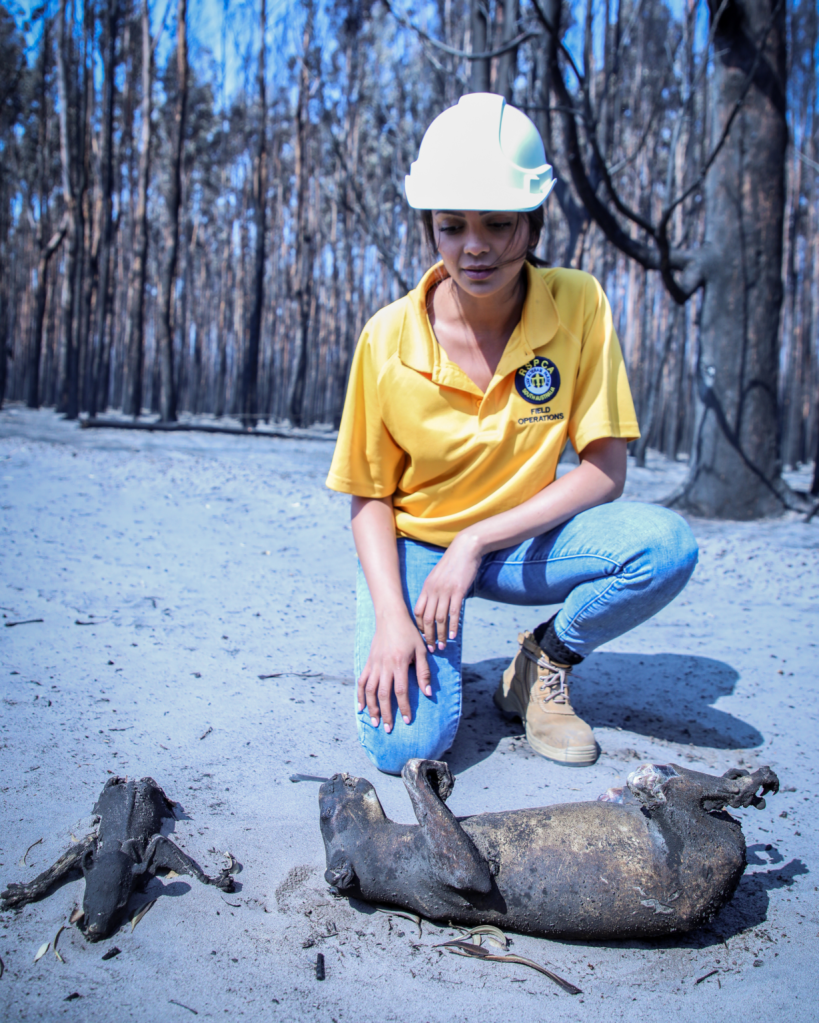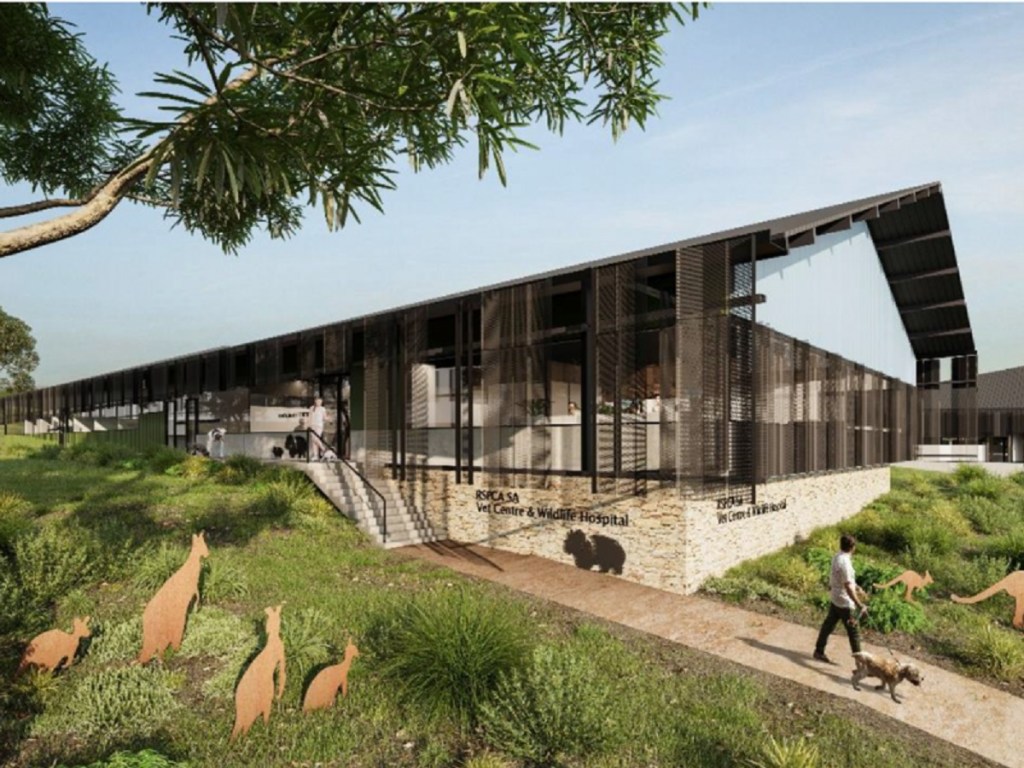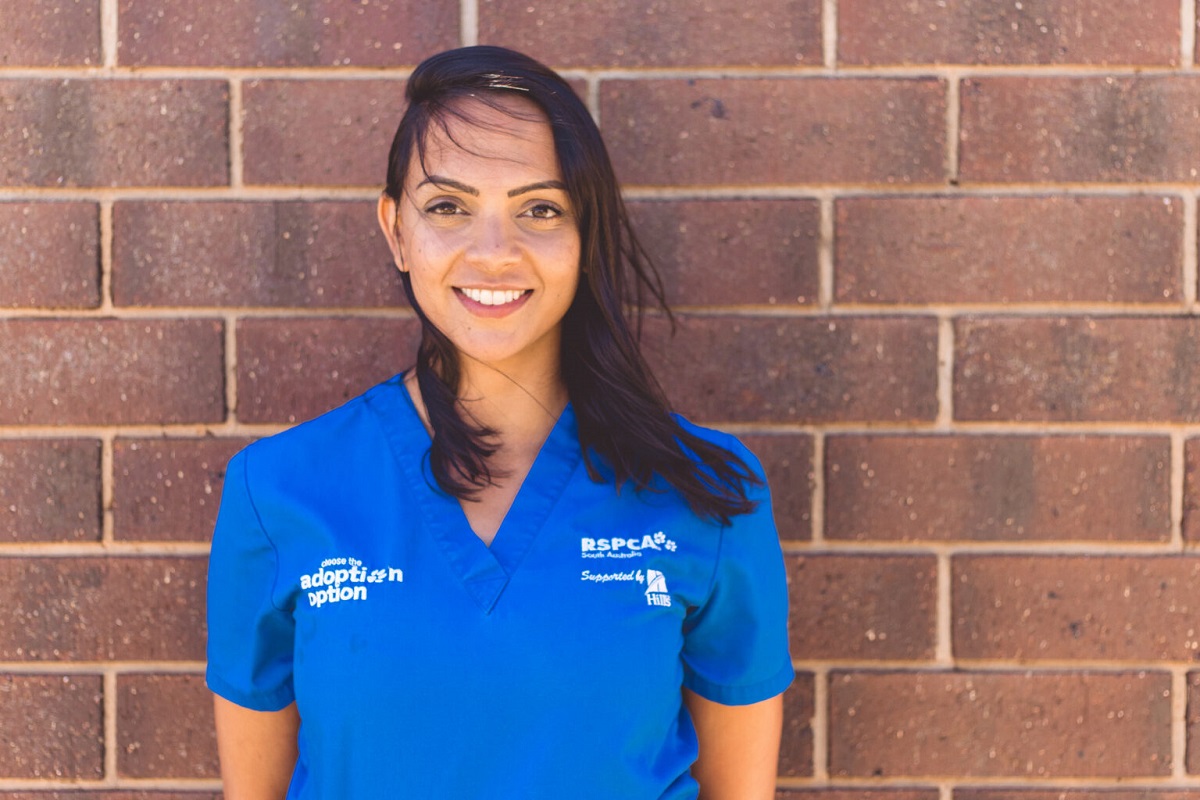Dr Gayle Kothari has been appointed as RSPCA South Australia’s first female Chief Veterinarian following more than 10 years in the veterinary care industry and seven of those with RSPCA SA.
In her new role, Dr Kothari will lead a team or more than 20 dedicated animal lovers and professionals and will head up RSPCA South Australia’s new state-of-the-art Animal Care Campus being built at O’Halloran Hill.
The $27 million campus houses the state’s first purpose-built 24/7 wildlife hospital, along with domestic animal care facilities and animal welfare education facilities.
Dr Kothari said she is looking forward to leading her team when they relocate to the new campus in early 2024. Incorporating best-practice design and infrastructure, the campus and its wildlife hospital will be geared to deliver high-level wildlife and general animal care, as well as community education programs designed to lift welfare standards across the state.
“As we move into the new campus, we’ll be focused on increasing the capacity within our team,” Dr Kothari said.
“This will include increased training and developing stronger relationships with existing wildlife rescue groups in South Australia.”
Tim Charles, who has stepped out of managing RSPCA SA’s Animal Operations to oversee the building of the new Animal Care Campus, said he was delighted Dr Kothari had accepted the key leadership role.
“This is a very exciting time for RSPCA SA as we prepare to relocate to a vastly better facility and location for the thousands of animals coming into our care each year, and to expand into the 24/7 treatment and care of injured and ill wildlife,” he said.
“Gayle has demonstrated all the skills needed to assist us in setting up both our new vet clinic and the wildlife hospital and ensuring both run as efficiently as possible.
“Having Gayle on board, with her enthusiasm, skills and experience, will set us up for great success.”
About Dr Kothari
Dr Kothari’s passion for treating animals was first ignited while working as a research intern at London’s Institute of Zoology in 2007. Working as part of the Living Planet Index (LPI) team, she was tasked with discovering the indicators for assessing progress towards the United Nations Convention on Biological Diversity (UNCBD).
“In simpler terms, we worked on researching biodiversity loss, with the goal being to reduce it,” she explained.
During her time at the Institute, Dr Kothari completed her Master of Science in Wild Animal Biology, before being offered a life-changing field research role in the Uaso Ngiro Baboon Project, located in the remote Laikipia community of Kenya.
Carrying out intensive data collection on baboon behaviour and ecology, Dr Kothari would often go days without any human interaction, as she was stationed deep within the secluded Eastern Laikipia Plateau. With no electricity or running water, she describes it as a “unique” experience.
“My day-to-day routine involved waking up before sunrise, going out and finding the baboons, and collecting the data I needed – that was it,” Dr Kothari said.
Following 18 repetitive and isolated months, Dr Kothari decided she had learnt all there was to know about the beauty of the world’s red-eared primates, and it was time for a new adventure.
In 2010, she travelled to Australia with a one-way ticket and a few weeks here was long enough for her to find a trainee veterinary nurse position at the Lismore Central Veterinary Hospital, where she was given the opportunity to complete her Certificate IV in Vet Nursing. But she still felt unfulfilled and decided that she wanted to study to become a vet.
A few years later, with a Doctor of Veterinary Medicine and an abundance of memories, new friends, and experiences up her sleeve, Dr Kothari moved across the border to South Australia.
She first found work at Marion’s Southern Animal Hospital as a small animal veterinarian, before joining the RSPCA veterinary team in 2015.
Dr Kothari has played a pivotal role during her time as RSPCA’s senior veterinarian and clinical services manager, helping to steer and grow the tightknit, high-functioning team.
She developed and led RSPCA South Australia’s first Community Cat Desexing program (a joint initiative with Onkaparinga City Council) and worked tirelessly treating the injured wildlife in the aftermath of the Kangaroo Island bushfires.
Dr Kothari is looking forward to increasing her impact as she takes on this new role of RSPCA South Australia’s first-ever female Chief Veterinarian.
“My main focus over the next three years will be expanding the scale and the scope of what we do here at RSPCA,” Dr Kothari said.
“Last year we treated more than 9,000 animals, and we’re only expecting that number to increase.
“We do a lot with the very basic facilities that we have here at Lonsdale, and it’s not until you stand back and have a look at the results that we’ve produced over the years that you realise how truly astronomical they are – I only hope to continue increasing these.”
Dr Kothari admits that when first she walked through the doors of Lonsdale’s vet care centre in 2015, she was not aware of how much work the organisation was doing behind closed doors.
“When I really looked into it, I came to the realisation that everything that happens in animal shelters across Australia is a direct reflection of what is happening out in the community,” she said.
“After I made that discovery, I decided that I needed to be part of the greater solution, and that was to challenge societal values and education around the way we breed and treat animals in the community.”

Reflecting on the devastating bushfires
In 2020, after bushfires tore through Kangaroo Island’s Hanson Bay Wildlife Sanctuary, Dr Kothari and her team were there, working through kilometres of blackened and charred land as they searched for signs of life amongst the devastation. The sanctuary itself had been destroyed and so many animals had lost their lives.
Many others were simply beyond help, and the kindest thing for them was to end their lives and their suffering.
“My heart breaks just thinking about those moments,” Dr Kothari said.
Dr Kothari and her team organised a makeshift triage and treatment space inside one of the few surviving sheds, rigging up a saline drip by throwing a rope over a roof beam.
“We did the absolute best we could with what we had, but the whole situation really highlighted the deficiencies in the system and what we need to work on to be prepared for future ecological disasters.”
RSPCA South Australia’s new state-of-the-art Animal Care Campus being built at O’Halloran Hill is a definite step in the right direction in addressing those deficiencies.
Until RSPCA South Australia’s Animal Care Campus opens, Dr Kothari will continue leading the vet team at RSPCA’s Lonsdale shelter, providing life-saving treatment and care to all creatures, great and small.

To stay up to date on the latest industry headlines, sign up to the Pet Industry News e-newsletter.

